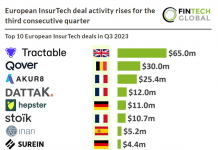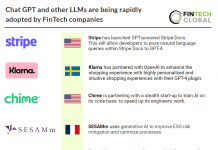The Latin American InsurTech ecosystem is in its early stages compared to other regions, which means the market opportunities for insurers and InsurTechs are vast. A middle-class population that is demanding more digital services, coupled with global advances in technology, is creating a perfect storm in enabling growth in the region.
William Taylor, business development manager, Americas at Sentiance, a data science and behaviour change software company, said the growth of many economies within Latin America is bringing new opportunities for an increasing middle class to improve their health, buy new cars, own their own homes, and ultimately protect these assets with insurance products.
Similarly, Vinicius Franklin, country manager for Brazil at InsurTech Tractable, said Brazil and Mexico are both large countries with populations increasingly desiring services that improve their lives and give them more security.
In response to this, Tractable recently expanded its operations in Brazil through partnerships with multinational insurance group Mapfre and Atos in the region. The agreements see the company apply its AI solutions to auto insurance claims for the firms.
Speaking at the time, the company said, “Brazil is obviously a very attractive market. Not only is the economy growing quickly, but Brazilians love their cars – and, therefore, it’s a country where our AI, which accelerates accident recovery, can make a tangible difference very quickly.”
Franklin said Latin American insurance is an “amazing opportunity” for growth “given the size of the populations, the total number of vehicles in circulation, and the low percentage of insured customers in comparison to Western countries.”
This has been reflected in the level of investment flowing into the region recently. Earlier this year saw the largest Series A funding round raised by an InsurTech in the region, secured by 180° Seguros. Brazilian InsurTech Justos secured $35.8m in its Series A round just months after its seed close and Mexico-based InsurTech Guros hit a $30m valuation after closing a $5.8m round, to name a few.
Sentiance’s Taylor said investment into the Latin America region has been increasing over the past ten years as VCs spot opportunities. He said according to Pitchbook, venture-backed companies raised more than the total capital invested in the region in the previous six years combined. Similarly, FinTech Global reported that FinTech companies in the region raised $9.7bn just nine months into 2021, up from $2.9bn the year previous.
For InsurTech specifically, Taylor said the relatively small portion of the population which is insured coupled with the advances in mobile technology which gives people more control over what financial services they can access, has created a “perfect storm” of enabling growth in InsurTech in Latin America.
Opportunities for the taking
Sentiance’s Taylor said more capital flowing into Latin America from local and afar creates opportunities for local entrepreneurs to create homegrown products that are localised and know their customers better than international competitors. “There’s a strong culture of entrepreneurship in Latin America, which combined with new, scalable technologies, enables startups to thrive,” he said, adding that consumer choice is no longer confined to large, often international, insurance carriers; much more choice is available locally.
A good example of this Latin American entrepreneurial spirit is the Chilean-based startup Betterfly, which became the first Latin American “social” unicorn this year after raising $125m in Series C funding. The company was founded in 2018 after founder Eduardo della Maggiora wondered if technology could be used to improve people’s wellbeing. The B2B2C platform offers products helping charities around the world, as well as personal wellbeing services and life insurance products.
Additionally, Betterfly partnered with property and casualty insurer Chubb to expand its offering in Mexico, Colombia, Ecuador, Chile and Argentina. Referencing a Swiss Re Institute Report from October 2020, Betterfly said most people in Latin America do not have life insurance coverage, thus it is making it easier and more affordable for individuals and companies in the region to access financial, insurance and lifestyle benefits.
Digital products are democratising and improving access to insurance products. Sentiance’s Taylor said technology has enabled insurance products to be more scalable, hence creating opportunities to reduce costs and barriers to entry in developing markets. “Combining low costs with a technology-friendly and young population, digital products are making insurance more accessible.”
Democratising insurance products and financial products seemingly goes hand-in-hand. Brazil-headquartered challenger bank Nubank launched an insurance product at the start of this year. The product covers damage and theft of mobile phones, with coverage provided by Chubb Seguros Brasil. Nubank said it strives to serve unbanked or underserviced citizens in Brazil. David Vélez, Nubank CEO, said at the time, “Around 50% of the population in Latin America still does not have a bank account. Credit card penetration is, on average, 21%, while in the United States this number is over 70%.”
The opportunities available for insurance in Latin America may specifically benefit innovating InsurTechs. Tractable’s Franklin said there is huge scope for digital optimisation in the region, however, it can be hard for big insurers to be agile enough to capture this potential. “They can be big and slow-moving, making it difficult for them to develop and execute transformation strategies that generate new business models, sources of revenue, and different types of customer relationships.”
Instead, Franklin said InsurTechs can “fill that gap”, by transforming and recreating the way insurers do business and go to market. “You can see this in areas like claims management, where introducing new technologies like AI is dramatically improving both efficiency and the end-user experience, helping both the insurer and the customer,” he added. Indeed, Tractable’s partnership with Mapfre will focus on introducing such technology to auto claims, initially in Brazil, before branching out to other areas in Latin America. Mapfre is applying Tractable’s AI solution, which uses photographs taken on a customer’s phone to assess low-value damage. According to Tractable, this can accelerate the return of vehicles to their owners after an accident by as much as two weeks.
Moreover, Tractable’s Franklin added that opportunities and innovation in the region have been accelerated following regulation such as Brazil’s open insurance Initiative. Much like open banking, open insurance enables the standardised sharing of data and services through the opening and integration of systems between different insurance companies, InsurTechs and banks. This initiative is still in its infancy however, with the third and final phase – the sharing of services – scheduled to start in December 2022.
Challenges ahead
Although Latin America is ripe for innovation, it is in the earlier stages of InsurTech growth than other regions are, and this may bring about teething issues.
While scalable technology is making insurance more accessible in the region, Sentiance’s Taylor said, it is still a developing region where price points can be challenging. “Rolling out insurance to all is still some way off, taking into account a high percentage of the population is still underbanked with little access to financial services,” he said. Given that the majority of the population has access to smartphones however, this is where the opportunity lies to offer mobile-first insurance products.
Tractable’s Franklin warns that, like elsewhere in the world, “there is a lot of hype behind InsurTech,” and that means it is important to sort through the noise and understand what has real potential. “At Tractable, we always emphasise that insurers live test our technology on real claims, in order to demonstrate the efficiency that our solutions can provide – and we would encourage all buyers to do the same,” he added.
Franklin went on to say that given the market is changing so fast, it is hard for insurers to keep up with the pace of change. This creates unique opportunities for smaller companies to help by leveraging cutting-edge technology. “As well as insurance though, we see a huge number of opportunities for applying technology to other use cases across the collision ecosystem – for example, assessing the condition of cars that are being bought, sold or rented, or fleet management. So we think the potential role of AI in the Brazilian auto ecosystem going forward is very great,” he added.
Copyright © 2022 FinTech Global











